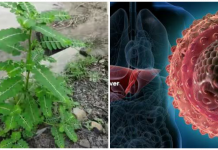There is an outbreak of lassa fever in all parts of Nigeria including Lagos, Ogun, Delta, Edo, Nassarawa, Kano, Cross River and still counting. This article will answer all the important questions about lassa fever and see us jointly contributing our quota towards eradicating the killer disease. Please we should endeavour to share this piece of information to our friends, families, loved ones and the general public.
We should not allow rats wipe out the human race through the lassa fever virus they harbour.
what is lassa fever?
Lassa fever is an acute viral hemorrhagic illness of 1-4 weeks duration. The virus is transmitted to humans via contacts with food, water and household items contaminated with faeces, urine, saliva and blood of Mastomys rat (rodent) known Mastomys natelensis. Other names include multimammate rat due to its multiple and prominent mammary glands(breasts).

States affected by lassa fever in nigeria
of course the list will not be exhaustive as new cases of lassa fever are diagnosed everyday in the various states across the federation coupled with the fact that some cases are misdiagnosed or not reported. So far, the Nigeria Centre for Disease Control has confirmed thatlassa fever has hit 21 states in Nigeria with a total of 106 deaths and 651 persons infected. Check the list below:
- Abuja, Federal Capital Territory
- Bauchi
- Borno
- Ebonyi
- Edo
- Delta
- Ogun
- Lagos
- Rivers
- Taraba
- Oyo
- Nassarawa
- Ondo
- Plateau
- Kano
- Niger
- Cross-River
- Anambra
- Enugu
- Gombe
- Kaduna
lassa fever outbreak in lagos
Lagos has been the worst hit of the recent lassa fever outbreak in 2017. The commissioner for Health, Jide Idris, said the state had recorded 14 suspected of lassa fever as at January. Recently, Lassa fever in LUTH has killed 2 persons, one of which is a 39 year old pregnant woman who died of bleeding disorder during childbirth. A total of 100 health workers have been quarantined with a doctor confirmed to be infected and isolated. The lagos state government, in a bid to curb the spread of the disease has declared total war on rats. Incentives ( a bounty) have been placed on the head of every rat killed.
symptoms of lassa fever
Symptoms of lassa fever include: gradual onset of persistent fever( that does not respond to treatment with panadol or antibiotics), general weakness and feeling unwell. after a few days headaches, sore throat, muscle pain, chest pain, nausea, vomitting, diarrhoea, cough and abdominal pain may follow.
In severe cases, facial swelling, bleeding from the mouth, nose, vagina, anus and low blood pressure may develop. Tremor, seizures and coma can occur in the late stages of the illness.
can one survive lassa fever?
Yes, but the illness can be fatal. Early diagnosis, prompt treatment, supportive care with rehydration and symptomatic treatment improves survival.
lassa fever prevention
This involves both personal action, immunization and community health action.
Personal action:any persons suspecting lassa should immediately report at the health centre near you. Avoid self-medication.
Immunization:there is currently no vaccine against lassa fever.
Community Health Action: Community “Health Action” to prevent lassa fever includes promoting good “personal” and “community hygiene”, as follows.
- safe handwashing practice
- storing grains and other food stuff in rodent-proof containers.
- Preventing rats or rodents from entering homes.
- Compliance with safe disposal of refuse far from the house.
- Maintaining clean households, hostels, libraries, laboratories, lecture halls, offices, rest rooms, cafeterias, clinics, etc.
- Family members and care-givers should always be careful to avoid contact with blood and body fluids while caring for sick person.
- Discard any food suspected to have been eaten by rats.
- Avoid contact between humans and rats. Declare war on rats in your household!
- Avoid littering of the environment. Use dustbins.
- Cook all food thoroughly before consumption.
- Eat food hot
- Discourage bush burning. Bush burning drives rats from the bushes to households
- Fruit and vegetable should be thoroughly washed with water before consumption.
- Use straw to drink bottled and packaged drinks.
Learn about other deadly infectious diseases like hepatitis b here
Was this article helpful? If it was, then save a life, share to a thousand persons and stop the fever.
RESOURCES: Vanguard























This is very useful, with combined effort we can curb the spread. Let’s all play our part. Thanks Dr. Udomoh
yes. let us join hands together